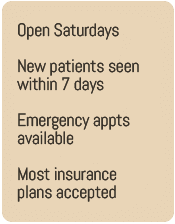How to Support a Loved One with Cancer
When you discover that a friend or family member is diagnosed with cancer, it can be a very scary, tough time. You’ll likely have a lot of questions about your loved one and how to best help. First and foremost, it’s vital to know that cancer is not a death sentence. New research and treatments are constantly increasing the rates of remission for patients with cancer.
Your loved one is about to undergo or perhaps already undergoing a very physically and emotionally draining journey. A support group of friends and family can help patients cope with their illness and better focus on healing.
Here are some ways you can be supportive:
Always listen – Your loved one is experiencing so much, and it’s important to let them share. Remember there will be good days and bad days. Be authentic in how you respond as well. Being positive helps a lot, and don’t be dismissive or patronizing when it comes to their thoughts or feelings.
Be respectful of choices – Everyone is different when it comes to his or her privacy or decisions about treatment. Some patients wish to keep their cancer diagnosis quiet while others openly discuss it. Also, do not argue about how they choose to proceed with their treatments. Be mindful of their wishes.
Make an extra effort to reach out – Don’t just say call me if you need anything because some people may not be comfortable asking for help. Do something specific or proactive. Consider bringing food, helping run errands or cleaning the house. Many practical things can be difficult while a patient undergoes treatment. Even something as simple as sending a card or swinging by to watch a movie can be a breath of fresh air.
Only give advice when asked – Many people do additional research about the specific cancer and treatment options, which is a good thing. However, it can be overwhelming, so don’t give unsolicited advice.
Create a sense of normalcy – Don’t be afraid to talk about the cancer, but also don’t talk about it all the time. Discuss subjects that your loved one enjoys, play games or attend activities together.
Help the primary caregiver – Being a caregiver can be a full-time job, and when you’re looking after someone so close to you it can be extremely hard to see them experience physical and emotional changes. Ask the caregiver if they need anything specific, or just tell them to take the day off. They may need some time to recharge as well.
Keep checking in – Unfortunately, cancer isn’t a short road. Treatments take time. Continue providing help and support for the duration of their treatment and beyond. Oftentimes, this means more than you’ll ever know.
For more help or tips, visit the American Cancer Society’s website – When Someone You Know Has Cancer.





